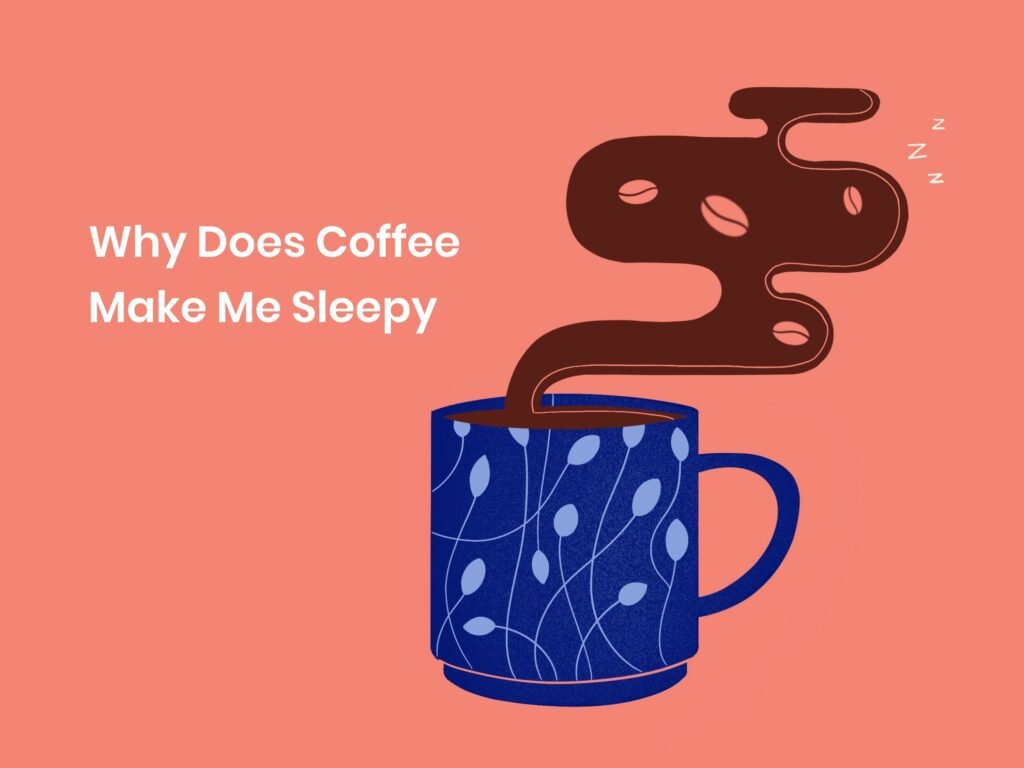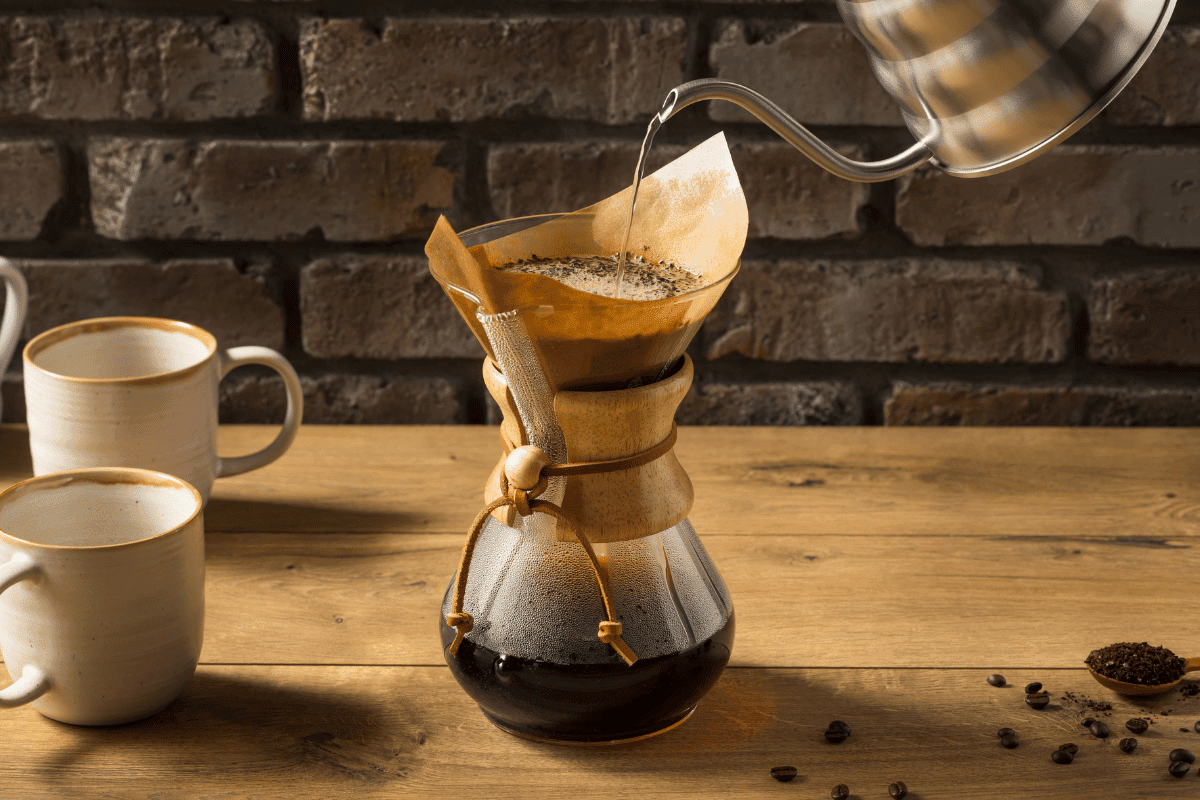
Why do you Feel Sleepy After Drinking Coffee?
It doesn’t take rocket science to understand why millions reach for the coffee pot to get them started on the right foot each day. It’s the same reason they come repeatedly throughout the afternoon and sometimes into the evening. In the United States, the most significant dietary source of caffeine is coffee. The caffeine in coffee boosts energy levels and makes us feel sharper. Add in the health benefits and uber-satisfying flavor, and it’s no shocker that over 50 percent of Americans drink coffee as part of their daily routine.
But not everyone reacts to caffeine in the same way. As odd as it sounds, instead of the caffeine giving you that relatively quick jolt of energy, some people may actually feel tired—or even experience a caffeine crash—after just one cup.
So if you’ve been drinking coffee all day but are still having trouble keeping your eyes open and are jonesing to take a nap right on your desk, hold the (coffee) press—it may not actually be the coffee making you feel tired.
7 Reasons Why You Feel Sleepy After Coffee
1. Adenosine will make you sleepy when the caffeine wears off.
Adenosine is a neurotransmitter in our central nervous system that causes fatigue when you aren’t receiving enough in your brain—the caffeine in coffee blocks adenosine receptors in your brain from receiving it. While preventing your brain from receiving adenosine, your body produces the neurotransmitter. Because of this, once the caffeine wears off, you have a build-up of adenosine still trying to attach itself to the receptors, making you sleepy.
2. You may be building up a tolerance to coffee.
If you drink several cups of coffee daily as part of your routine, you likely have built up a tolerance that keeps you from feeling energized, alert, and ready to hammer through your day! Since caffeine blocks the effects of adenosine, a regular dose of caffeine might mean your body starts to produce more adenosine receptors as a response. So, in theory, the more receptors you have, the less the coffee works as a pick-me-up over time.
3. Choosing coffee vs. water may be making you feel dehydrated.
Since coffee is a natural diuretic, you may have noticed peeing is your best friend when you consume a cup of Joe. That often makes people believe that drinking coffee leads to dehydration. That’s not true for most people who drink coffee. It doesn’t act any different than other beverages. The problem occurs when you are drinking coffee instead of water.
So if that describes your behavior—or if you are part of the minority of people who have a more active bladder in reaction to coffee, then you may go down a black hole of a dehydration cycle that eventually makes you more tired. Here’s what it looks like:
- Every time you go to the bathroom, your body is losing water.
- Once your body loses water, your blood thickens.
- Thicker blood moves more slowly through your arteries and veins, much like thick molasses in a slow drip.
- As a result of your blood slowing down, less oxygen is delivered to your body.
- Less oxygen causes you to become sluggish and lazy.
- When we feel sluggish and lazy, what better way to amp up again by reaching for more coffee. And the cycle begins again.
Try to consume a glass of water for every cup of coffee. This will help to maximize the effects of sleepiness as it will keep you hydrated and help you enjoy your caffeinated experience.
4. Caffeine can trigger a stress response.
When we drink coffee, the caffeine prompts our bodies to produce a hormone called cortisol, the same chemical we have when we’re stressed or scared. (That’s why it’s called the stress hormone.) Elevated cortisol levels can make you feel alert and keep you up at night, but increased cortisol can also lead to feeling super tired later in the day.
5. If you’re into sweet additives, you’ll be the one falling into a deep sleep.
While satisfying your sweet tooth, think about that sugar crash soon coming to a body near you. Sugar is processed much more quickly than coffee and leaves you without energy after your body uses it up. If you like a little coffee with your sugar, you may be experiencing a sugar rush and crash rather than a caffeine boost.
6. The dairy and creamers may be causing drowsiness.
An amino acid called tryptophan is in the milk you may add to your coffee. Even though it’s a relatively low percentage, tryptophan has been linked to sleepiness. So try swapping out the dairy in your coffee with a plant-based option—or save your waistline and forget it. If you feel more alert, keep the milk for winding down at night instead.
7. There could be mold in your coffee.
As disgusting as it sounds, if you’re sleepy after drinking coffee, it could be due to a mold in some coffee beans called mycotoxins linked to fatigue. Fatigue could be the least of your worries over time, however. Some studies show that coffee contamination can cause liver and kidney tumors and is considered carcinogenic to humans. That’s another excellent reason to watch those labels and only reach for the Certified Organic Death Wish Coffee beans.
Beany’s Pro Tip: Keep your coffee fresh-to-death by keeping it in an opaque airtight canister.
If you’re part of the rare breed that dozes off after your coffee and you’re looking for a quick fix, here’s some advice: You don’t have to give up coffee; just listen to your body. Go easy on the added creams and sugars, too. And since water is so good for our general health, make sure you drink water for every cup of coffee you enjoy. One final note: Coffee isn’t the only beverage that contains caffeine. Sodas, energy boosters, and even some pain relievers offer a kick of caffeine. So, make sure you’re keeping track of your total caffeine intake. It may not be coffee’s fault at all.





